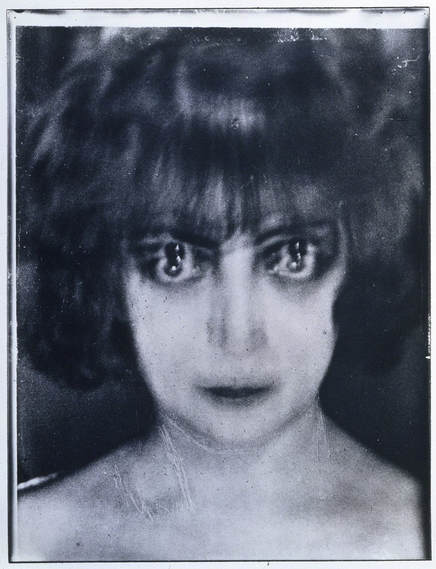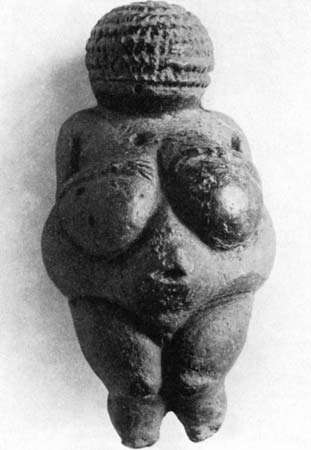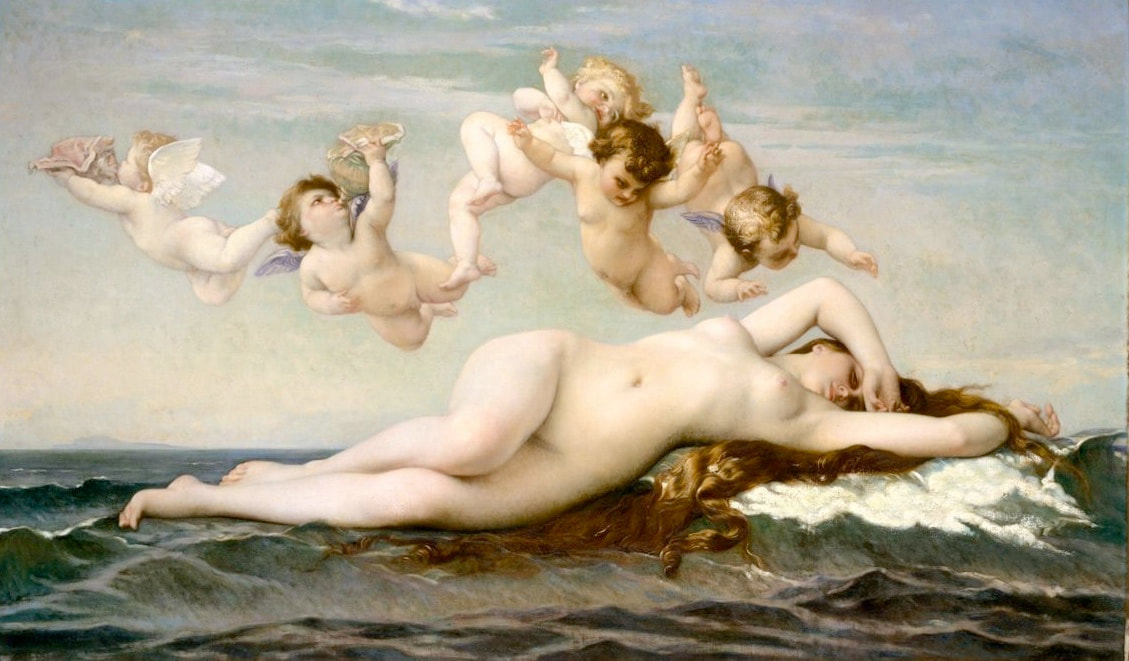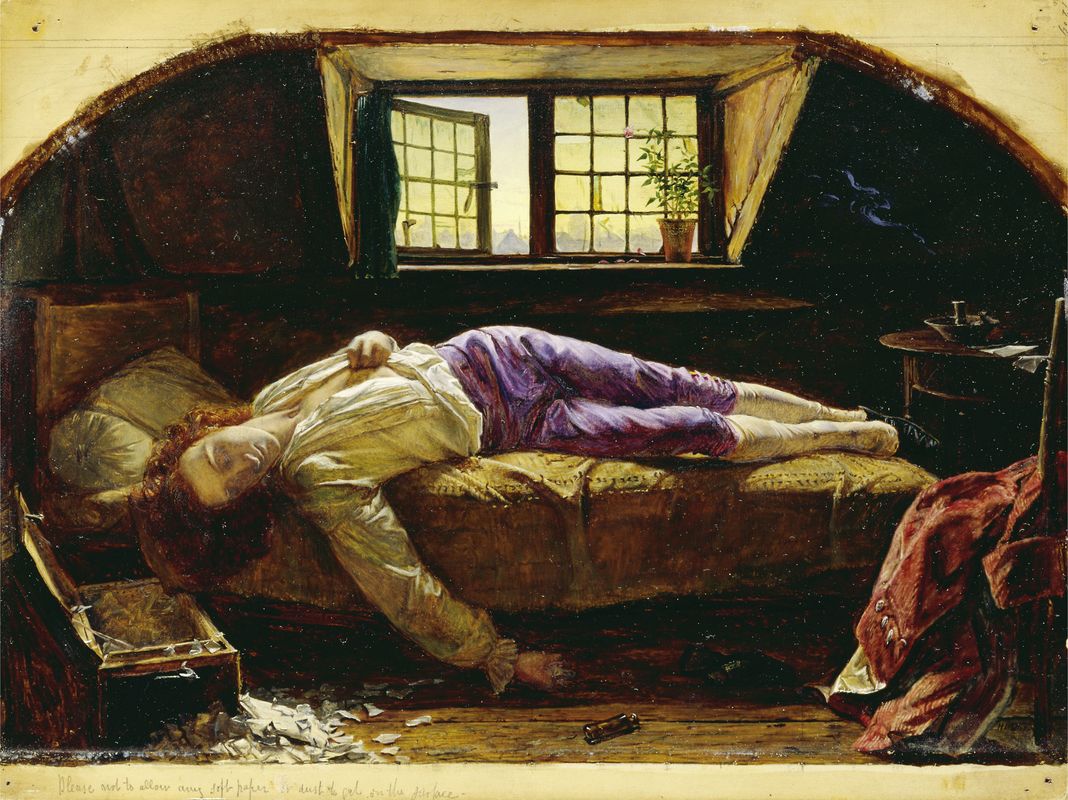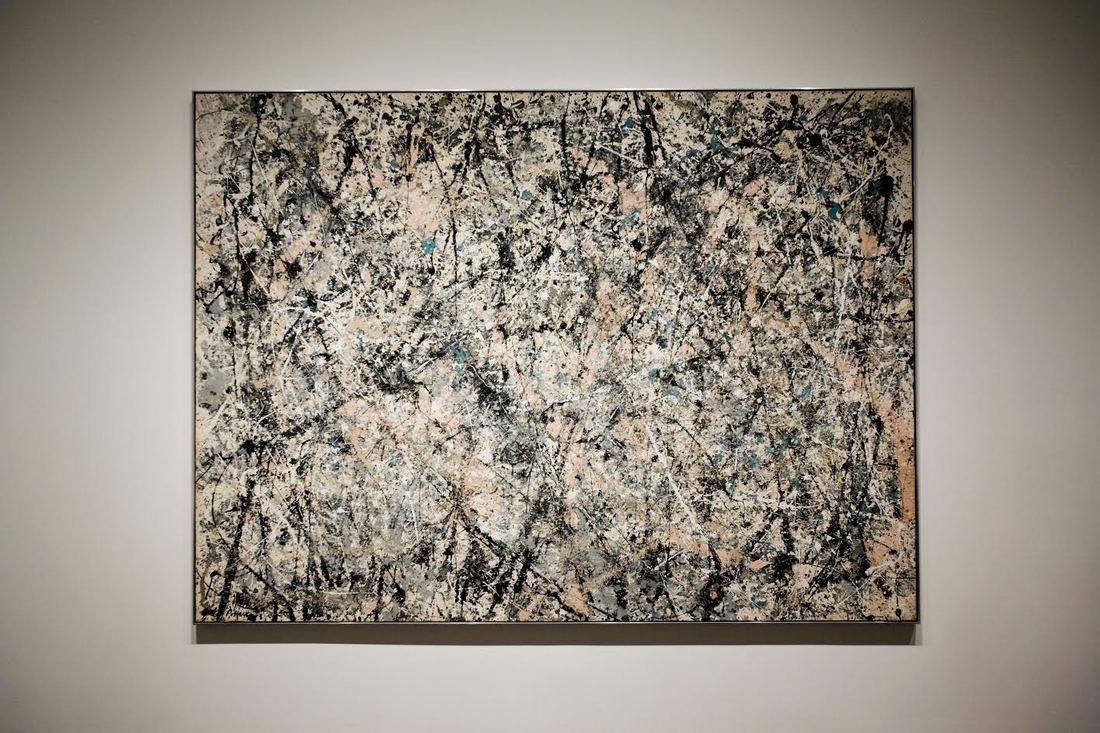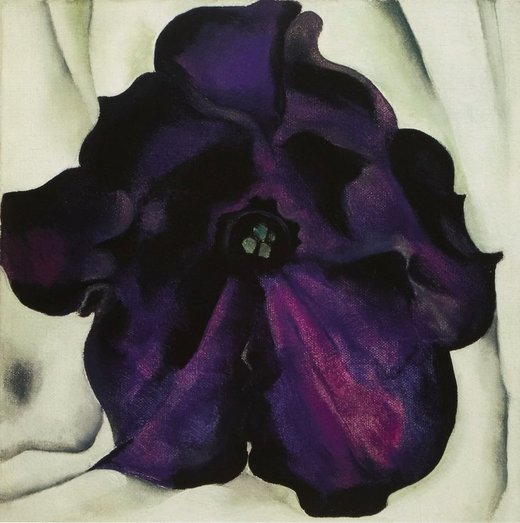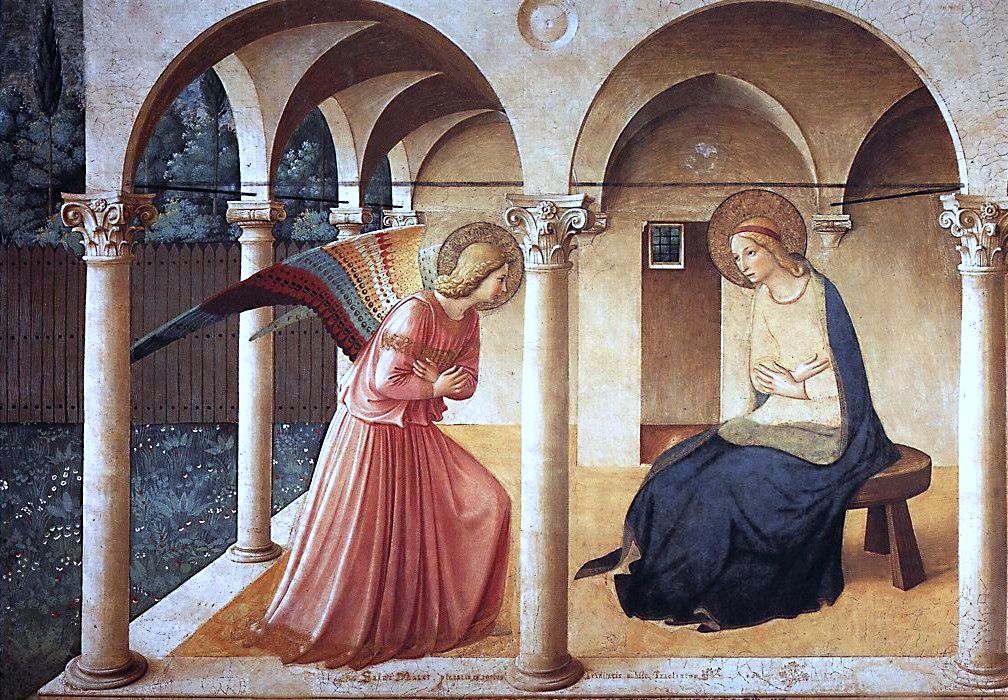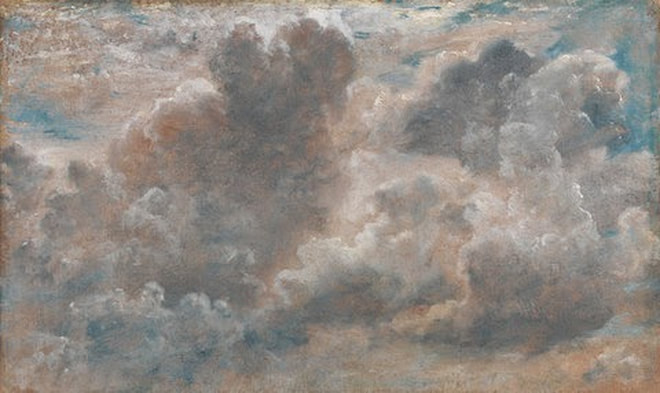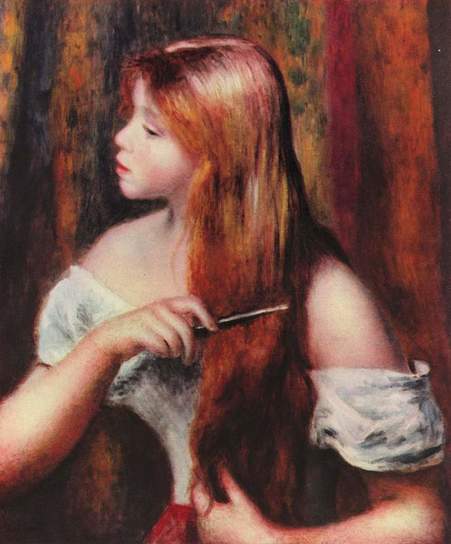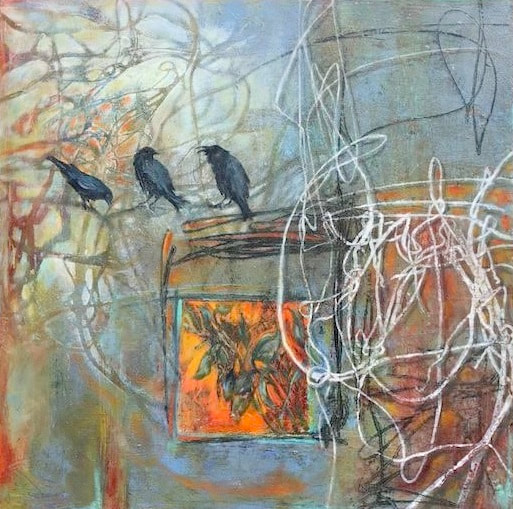|
What the Moon Believes
Man Ray’s La Marquise Casati gazes outward on the wall facing the windows she seeks the sea insect eyes double exposure distinctions of eyelashes and pupils blurred the pallor of her skin against the void behind so much like the moon lost in its own push and pull perhaps she wishes the ocean would wash her make her holy ravish her until she’s no longer lonely or perhaps she wishes the earth would overwhelm her drag her downward with its gravity crush her until she’s no longer lonely like the boy who sits on the shore clutching a kitten limp and lifeless his hands tremble like water unaware of the cruelty driven by his love for the soft sweet thing Kari Ann Ebert Kari Ann Ebert’s poetry has appeared in literary journals including cahoodaloodaling, The Broadkill Review and Gargoyle, as well as the anthology Aurora. She also writes short fiction and is currently editing her first novel. She was selected by Delaware Division of the Arts to attend the 2016 Seashore Writers Retreat and was nominated for a Pushcart Prize in 2016. She lives in Delaware where she enjoys being a part of a vibrant tribe of writers. She has two grown children who write and are active in the dramatic arts.
0 Comments
Venus for Sale
i. Venus of Willendorf, artist unknown (Austria) 28,000 to 25,000 BC. Stone chipped away until all that is left is what is needed. Pendulous acorns of desire, a belly button to bring the eye down. No feet, no hands, no resistance. Rows tightly binding the head down. No mouth, no eyes. And fits all in the palm of your hand. Convenient to carry, perfect shape for pleasuring. ii. Venus de Milo, sculpture by Alexandros of Antioch, (Antioch). 130-100 BC. We’ve streamlined your desire without taking away anything important! Everything the right proportion to please. Satin skin (we’ve polished to neutrality), tunic just waiting to be tugged free. That hole under her right breast? Not a flaw! When removing her arms to better accommodate your lust, (she was only offering an apple anyway) we filled in that hole by her heart. iii. Venus di Medici, by Cleomenes(?) (Greece). 100 BC. Such sweet buttocks, like winter peaches! And if you prefer the object whole, then here’s your girl. The arms are placed to tease, skin shining like dew. Stripped of paint and cloth, without the choice of blonde hair and red lips we’ve brought you that much closer to the ideal. Imagine the most amazing, beautiful treasure in the world. Imagine the most divine, unattainable, perfect ambrosial aspect of sensation. Now she’s yours to take home. iv. The Birth of Venus, by Sandro Botticelli (Italy). c. 1486. White as lucky stones, soft and long haired. That hair that has so much to give it reaches out on its own. Another organ. Another limb. Tugging your eyes toward her. And the breasts. Gifted. Cups of milk just poured. Icicles on a hot day. They look straight at you, unlike her eyes. But, oh dear Lord, that hair you can hold on to. v. The Toilette of Venus, by Francois Boucher (France). 1751. Here we give her to you domesticated, no strings attached. Just place her anywhere and see her glow; her skin is polished to match your table and lamp! No upkeep either because she comes with her own putti, those nameless babies, and a plethora of shiny baubles to keep her busy. In fact, we carry this one in multiple versions if you’d like two. vi. Birth of Venus, by Alexandre Cabanel (France). 1862. Perhaps this is what you were looking for all along. You crave the first moment of desire when it rises and fills until it explodes in perfection. This flesh of pink and white marzipan rising fresh from the sea. A vanilla latte leaning out just for you. Demurely shaded gaze hidden behind the triangle of arm opened, breasts of snowy down turned out like handles hovering over hair like glistening taffy, spread out beneath, a shiny wrapper just torn. vii. Venus Rising from the Sea, by Gustav Moreau (France). 1866. Yearning for that heavy hand? Do you want to feel how hard she can hit? She will let you love her if you worship her. Do you ache to give and not receive? You can’t give enough for her to ever look at you. This one is costly, but so worth it. Unlike you – you will never be enough. viii. Venus Verticordia, by Dante Gabriel Rossetti. (Italy) c.1868. Still not satisfied? Need a challenge? This turner of hearts will reel you in. You get the hair. You get the breast staring right at you. You get the spear to the heart. Love without fear of loving. Love without fear. Lips like blood-stained honeysuckle. Take her apple, she’s giving it to you. Follow that dart down and you’ll end up amid the roses. Credit cards accepted. ix. The Birth of Venus (1 of 6), by Odilon Redon (France). 1912. They’re selling fast, but I have a few left. Here you can have her in a dream. Sit back with whatever you choose to smoke and get comfortable. Let her into your soul – she’ll be there waiting. You know you want to follow her back through to the other side before birth, to when we all mingled in smoky, hazy flesh and copper-tinted haze. When you and she were one. Taste the salt on your tongue. x. Uncertainty of the Poet, by Giorgio de Chirico (Italy). 1913. I know your type. The suffering monk hardened but cool, hot in all the wrong places at all the wrong times. You don’t want to take off your hair shirt to come into the bed. Leave your worries. Put your soul on the last train and pick your fruit. No need to wash. xi. Venus Restored, by Man Ray (USA). 1936. You liked that one? I’ve got another. We saved this one from the war. Just the right colour to go with anything. These are so hard to keep; I know you’ll want one too. We have quite a few replicas if you’d like to tell your friends. Processed for your pleasure until all that is left is what is needed. Pert apricots of desire, a belly button to bring the eye in. No feet, no hands, resistance subdued. Rows tightly binding the flesh in. No mouth, no eyes. Just imagine what you could do with this one. Short on cash? We even carry this in postcard size. Everyone wants her; why not get one too? xii. Venus of the Rags, by Michelangelo Pistoletto (Italy). 1967. You really are a tough customer. I don’t understand. I’ve given you desire, heaven and plain hot sex. You can pick from priceless to postcard. Versions of Venus are stacked here in the finest variety since Eve first ate the apple. Here I give her to you in one of the more unpopular poses. Perhaps you are looking for her existential pain. Take her then. She bothers me. Junk in the corner. I’ll give you this one for nothing; I’ve got a few. Don’t mind the cracks. Or the rags. It’s all junk. They don’t matter. Nothing matters. xiii. Death of Venus, by Roger Reutimann (USA). 2010. We’re closing. You’ve wasted my time. This is all I have left. It’s not worth anything, but I don’t think you have enough to buy it. Buy a Ferrari instead. You won’t get anything out of her; she’s dead. She’s got nothing to give you, and you won’t get any response from her bones. That pose? I’ve seen it done better for centuries. This one’s lost her touch. She doesn’t know how to earn her keep. Red like the blood she’ll suck from you if you let her. Really, it will take all you have to walk out of here with her. Take her, then. I don’t expect to understand. I just try to find the right fit. If you want to lie with death, I’ll sell you her coffin. Tanya Pilumeli Editor's note: Follow segment titles to their links to see all of the Venus artworks referenced. Tanya Pilumeli is a writing instructor and poet living on the shore of Lake Erie. She has published and won awards in various places including Tipton Review, Blue Collar Review and Blaze Vox. When not helping out with their Italian restaurant, she loves travelling the world with her husband and three teenagers. On the Death of Chatterton
i.m. Becky Morning in the gallery, sunlight floods the atrium. A harried dad ushers twins with fuchsia pink ruck-sacks to the shop. Pre-Raphaelites first? a woman asks her friend. A clatter of school kids descends. Strange, I find myself alone in front of Chatterton again: right arm limp, face gaunt, neck livid; a phial of poison and torn papers strewn across the garret floor. Christ-like, his pose, the hush are the closest I get to church. Dust-motes float a memory through my heart – another lost poet, beautiful, young; I cup my hands to catch her, find her gone. Jane Salmons Jane Salmons lives in Stourbridge in the UK. Currently studying for an MA in Creative Writing, she has had poems published in The Ekphrastic Review, Ink, Sweat and Tears, The Lake, Algebra of Owls and other webzines and journals. Lavender Mist
Jackson Pollock, 1950, oil, enamel, and aluminum on canvas: 221 x 299.7 cm (87 x 118 in) framed canvas grained pave of parking lot igneous rock flood tide brown shrike pigeonshit off-white streaked dribbled down --the ghost of Pollock squatting motion playing about the edges fingers flown-- suddenly I fell into the lavender the gritty mist I glimpse the not quite paradigm Leland James Leland James is the author of seven books of poetry and two books on creative writing and poetry craft. He has published over 200 poems in journals and magazines worldwide; also a number of short stories, including The Lyric, Form Quarterly, Rattle, The South Carolina Review, The Spoon River Poetry Review, New Millennium Writings, HQ The Haiku Quarterly, The American Cowboy; The London Reader, and London Magazine. He was the winner of The UK’s prestigious Aesthetica Creative Writing Award. He has won or received honors in many other competitions, both in the USA and Europe. Leland has been featured in Ted Koozer’s American Life in Poetry and was recently nominated for a Push Cart Prize. www.lelandjamespoet.com The Soul of the Rose
Russet hair laced with sable strands drawn to a knot intricate as the pink-kissed rose she fingers Heady scent quickens heart infuses her empty hand pressed hard against garden wall with longing for touch and its return dreamed of behind wilted eyelids This rose knows no thorns, boasts only layers of silken lips that unfold till blossom is plucked then pressed between unstained pages in a book thick and musty like the mist that coaxed then cloaked his ship at dawn Nancy K. Jentsch Nancy K. Jentsch has taught German and Spanish for over 35 years at Northern Kentucky University. She has published scholarly articles, short fiction and poetry in journals such as Journal of Kentucky Studies, Eclectica, Aurorean, and Blinders. Her chapbook, Authorized Visitors, has been published by Cherry Grove Collections, an imprint of WordTech Communications (2017). Seven of her ekphrastic poems appear in the collaborative chapbook Frame and Mount the Sky (2017). Her Facebook writer’s page is https://www.facebook.com/NancyJentschPoet/. Untitled (Purple Petunia)
"Nothing is less real than realism... details are confusing. It is only by selection, by elimination, by emphasis, that we get at the real meaning of things." Georgia O'Keeffe The petunia is beheaded, fills the canvas edge to edge. Interlacing pear-shaped petals kaleidoscope around three, or maybe four, small pale blue dots that demarcate a centre. The colour is the plum of those taken from the icebox (so sweet and so cold). A plum for tasting where it lies sprawling on a rumpled sheet. I know the psychobabble of O'Keeffe's flowers, how hearing it at first in college, I was angry, so I looked away. It seemed a nasty thing to do, interpreting a woman's close attention to a thing equal to pubescent navel gazing. For years, I couldn't see amidst the rumors, the sexy callas, O'Keeffe's defiant wrinkled arms. Before all that, there was this plum petunia, plucked and given all her thought, alone in its asking, look. Surrounding noises curtained off, it becomes an open face, a cup of sweetness over-ripe just some moments from decay. Spackle speculation over top, it sloughs it off, continuing to be nothing other than only what it is. Jen Stewart Fueston Jen Stewart Fueston lives in Longmont, Colorado. Her work has appeared recently in Ruminate, Mom Egg Review and Pilgrimage, and is forthcoming in The Windhover, Whale Road Review, and others. Her first chapbook, Visitations, was published in 2015. She has taught writing at the University of Colorado, Boulder, as well as internationally in Hungary, Turkey, and Lithuania. You can find her online at www.jenstewartfueston.com and on twitter @jenniferfueston The Laws of Perspective Every painting comes from far away (many fail to reach us), yet we only receive a painting fully if we are looking in the direction from which it has come. —John Berger In those days, the stricken were brought on stretchers to a place where the overland roads of the Empire met, intersected, ran on. There the afflicted were lowered to the shoulder-- eased as they could be, kissed, if they could be-- and left in the hope that a healer might come from afar who would not look away. The painting, too, has come from afar: a girl-child visited by an angel, both figures bowed to the arc of a narrative so time-worn you’d swear you knew it in the womb: two perfected gestures met on the wooden panel-- the virgin’s crossed arms, the angel’s bent knee-- transfixed, in gold light, in the instant before it will be too late. When Fra Angelico’s miracle finds you, the age of faith will be well in your past. You’ll be at your own crossroads peering, as warned, in the wrong direction. Even so, the moment will shimmer. Your gaze will be fixed on the virgin / the angel / the receding archways of a century unschooled in the laws of perspective: a world still blinking at the two-dimensional. Of course, yours is a modern vision-- a shrewd eye, a single cocked eyebrow. Still, you’ll recognize this as a crossroads. You’ll lean in as if to stop the disaster—a young girl crushed by the wheels of acquiescence. Or you’ll watch, amazed, as the oils thicken and suddenly, piercingly, there are three: a child, a messenger angel, a Child. Or none of the above. You’ll stand there, stricken, on the brink of your age and its failure to save you. You: cradled in your own crossed arms in the arched entryway of a cold museum gallery while, from afar, they come bearing down upon you, the four unfurled dimensions come to crush you. Come to crush us all. And this is the moment foretold: you look away. Marjorie Stelmach Marjorie Stelmach has published five collections of poetry, most recently Falter (Cascade). Her work has recently appeared in the American Literary Review, Boulevard, Florida Review, Gettysburg Review, Hudson Review, Image, New Letters,Tampa Review and others. She is the recipient of the 2016 Chad Walsh Poetry Prize from The Beloit Poetry Journal. She lives in St. Louis, MO. Cloud Water
Just before he knew he was sick, my father took me to a dinner theatre in a barn to see the Christian Blackwood Brothers do Elvis. The roast beast was blander than British, and the horseradish ran out before I got into queue, but the gospel according to Elvis raised the rafters. I'd never had a thing for this velvet-throated bird: his pout was pretty but I never was convinced by all those sequins and spangles. Just didn't feel his soul in all of that. Turned out, that was true, sort of. The pomade and the girls and the bright lights had their allure, but they say all the King really wanted to do was sing about the King. When he did, all that was missing came together. His heart in his voice. All night, just him and his band, after all the hordes had long gone home. A woman in the powder room mirror at intermission was fixing her lobster-purple lipstick. She had Indian eyes but her hair was so pale you could see through it. She was talking to a friend in a cubicle that I could only see by her pointy toed boots and the jeans around her ankles. The disembodied voice from the toilet was saying something about Elvis, about how he once saw Stalin in the clouds, before the despot turned into Jesus. "And the good Lord said, Elvis, behold I come to you as living water," she was saying, and I could almost feel the rush of the rapture in the air as the toilet flushed. The sound was like a waterfall in Eden within the small stalled walls. After my father closed his eyes for the last time, I came across the brochure for that barn show where we'd been while sorting through some baskets. I pictured the bales of hay we rolled past on our way on that blue and shiny day. The river tumbling under the clouds was a black ribbon between sky and earth, like the innards of a cassette tape slinging south through fields and branches. In my memory, I could hear Elvis lowing sweetly from those clouds, saw Daddy ascending through the pick-up truck to run towards him. Lorette C. Luzajic Lorette C. Luzajic is a visual artist whose work has been shown at home in Toronto, in Vancouver, Los Angeles, Chicago, Edinburgh, Belfast, Brisbane, Tunis, Merida, and beyond. She studied for a B.A. in journalism, and has published hundreds of poems, stories, and prose. She is the editor of The Ekphrastic Review. Beyond the Curtain
absorbed in the rhythm she pulls her comb down reaches up pulls down and smoothes the red/gold of her hair she wants to speak to sing to the movement of her hand as she lifts and brings it slowly down through the rich silk but someone might hear stretch one hand from beyond the curtains and touch her shoulder she longs for that touch wants him there beside her but cannot ask Joanna M. Weston Married; has one cat, multiple spiders, raccoons, a herd of deer, and two derelict hen-houses. Her middle-reader, Frame and The McGuire, published by Tradewind Books 2015; and poetry, A Bedroom of Searchlights, published by Inanna Publications, 2016. Other books listed at her blog: http://www.1960willowtree.wordpress.com/ http://www.1960willowtree.wordpress.com Orange Pores
Open sesame. Her canvas summons me from her easel to come hither. Opening to awe, as a studio window opens to light -- yet conjures the yard’s back side. Outside/inside -- side-by- side. Below the painting’s midriff, another window – burnt sun. A vine sprouts through tigress hue. Hither/ thither, furtive marigold plays hide/ show through steel-blue sheen. Grey branches scribble apricot dreams, grow long on linseed oil. Three black birds lounge on a semblance of a limb. The frowzy pair on the right need preening. Perhaps, they’ve fought to a draw, failing to charm the third, a victor’s mate, who bows her head. Perhaps, she lures with self-absorption, or hears a suitor say, not worth the fray, and turns away to treat herself to aphids. Nearby, a white conga line, libertine as an Argentine tango. One crow takes me to task, can’t birds aspire without a peanut gallery? Perhaps, this klatch limns avian equality. Perhaps, the fiery window isn’t desire, and wanton gazes draw away. But if glances swoop into the amber hold; or wings entwine in white cord – bound by the life-line of the painter’s palm? Long ago, these beguiled travelers happed upon this emblazoned tree; alit at this twiggy haunt for ripe berries and fraternity; nestled, birthed young, swapped caws of close calls with hawks. I peer – recall tangerine – a mute fourth, clipt talon. Theodore Eisenberg Theodore Eisenberg: "By way of background -- I am married, with four children and six grandchildren. I retired from the practice of labour law in 2014 to write every day. I had been managing partner for almost ten years, which gave me the opportunity to learn something of how the world works. My poems have appeared in The Listening Eye, Midstream, Jewish Literary Magazine, The Aurorean, Podium, Poetica, Thema, Rattle, Halfway Down the Stairs, Slipstream Press, Crosswinds Press, Lighthouse Literary Journal, Main Street Rag, concis, Philadelphia Stories and The Ragged Sky Anthology. My chapbook, This, was published by Finishing Line Press in March, 2017." |
The Ekphrastic Review
COOKIES/PRIVACY
This site uses cookies to deliver your best navigation experience this time and next. Continuing here means you consent to cookies. Thank you. Join us on Facebook:
July 2024
|
